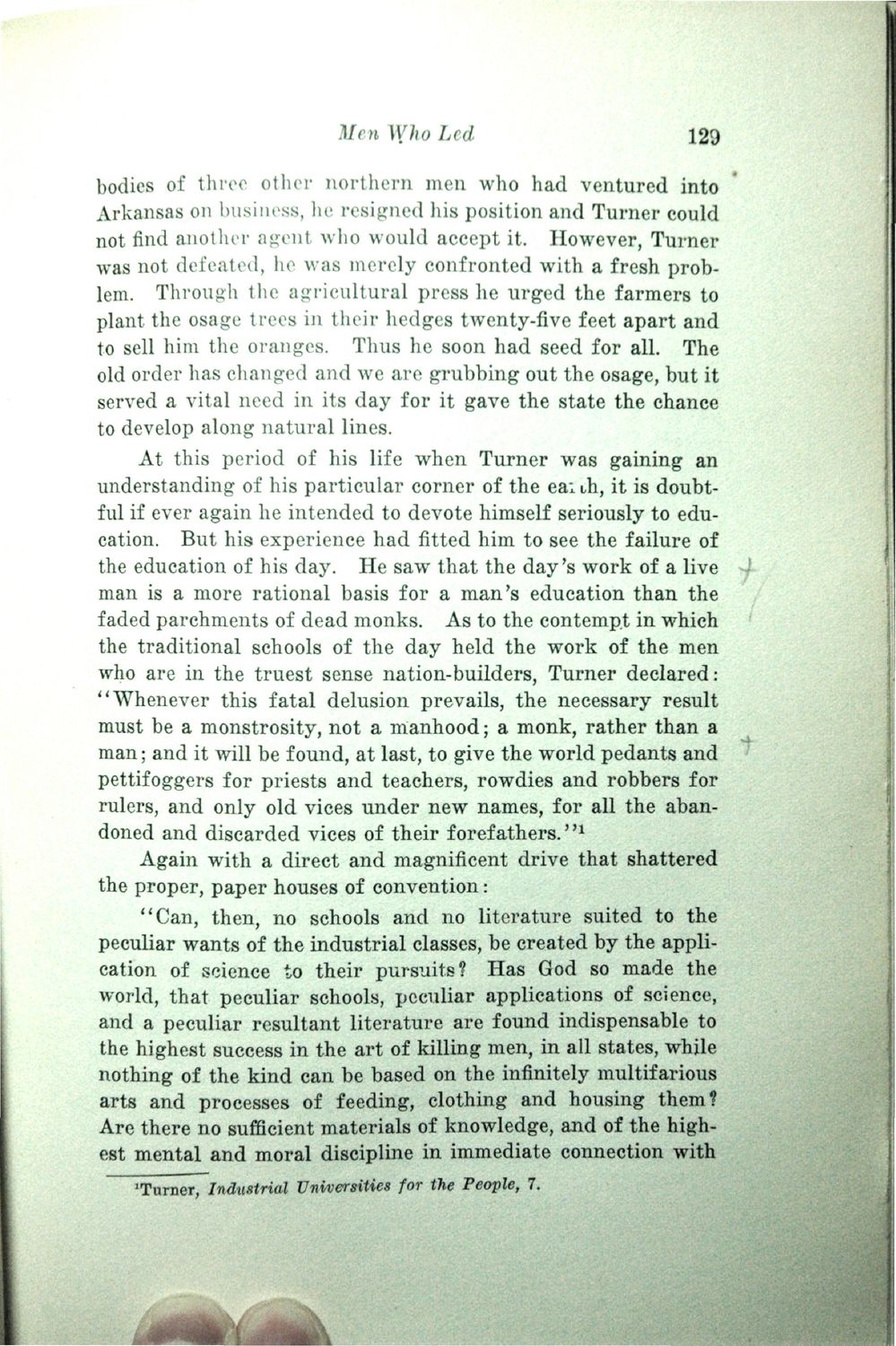| |
| |
Caption: Book - History of the University (Powell)
This is a reduced-resolution page image for fast online browsing.

EXTRACTED TEXT FROM PAGE:
Men Vflio Led 129 bodies of three other northern men who had ventured into Arkansas on business, he resigned his position and Turner could not find another agent who would accept it. However, Turner was not defeated, he was merely confronted with a fresh problem. Through the agricultural press he urged the farmers to plant the osage trees in their hedges twenty-five feet apart and to sell him the oranges. Thus he soon had seed for all. The old order has changed and we are grubbing out the osage, but it served a vital need in its day for it gave the state the chance to develop along natural lines. At this period of his life when Turner was gaining an understanding of his particular corner of the eaith, it is doubtful if ever again he intended to devote himself seriously to education. But his experience had fitted him to see the failure of the education of his day. He saw that the day's work of a live man is a more rational basis for a man's education than the faded parchments of dead monks. As to the contempt in which the traditional schools of the day held the work of the men who are in the truest sense nation-builders, Turner declared: "Whenever this fatal delusion prevails, the necessary result must be a monstrosity, not a manhood; a monk, rather than a man; and it will be found, at last, to give the world pedants and pettifoggers for priests and teachers, rowdies and robbers for rulers, and only old vices under new names, for all the abandoned and discarded vices of their forefathers." 1 Again with a direct and magnificent drive that shattered the proper, paper houses of convention: "Can, then, no schools and no literature suited to the peculiar wants of the industrial classes, be created by the application of science to their pursuits? Has God so made the world, that peculiar schools, peculiar applications of science, and a peculiar resultant literature are found indispensable to the highest success in the art of killing men, in all states, while nothing of the kind can be based on the infinitely multifarious arts and processes of feeding, clothing and housing them? Are there no sufficient materials of knowledge, and of the highest mental and moral discipline in immediate connection with 'Turner, Industrial Universities for the People, 7.
| |